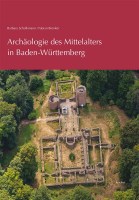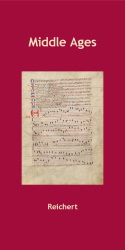Search
Scholkmann, Barbara; Brenker, Fabian
Archäologie des Mittelalters in Baden-Württemberg
2023
17.0 x 24.0 cm, 413 p., 221 illustrations color, 65 illustrations b/w, hardback
ISBN: 9783752007299
go to ebook version
17.0 x 24.0 cm, 413 p., 221 illustrations color, 65 illustrations b/w, hardback
24,95 €
ISBN: 9783752007299
go to ebook version
Short Description
For about 60 years, the archaeology of the Middle Ages has been pursued as a separate research discipline in Baden-Württemberg. This book is the first to present a synopsis of the results of research to date and the questions that remain unanswered. The authors go back to the first evidence of Christian architecture and trace the development to the important monasteries on the eve of the Reformation. They fathom the early development of the palaces and towns, with skeletons and food waste revealing much information about the diet, economy and beliefs of the population of the time. Newly discovered walls, pits and finds provide insights into everyday life in the countryside and castles. They also bear witness to the hardships and ingenious inventions in mining, navigation and crafts. Extensive bibliographical references for further reading complement the volume and, with many photos and plans, make it a handbook of medieval archaeology in Baden-Württemberg.Description
For over 60 years in Baden-Württemberg, remains from the Middle Ages preserved in the ground have formed an area of work and research for archaeological monument preservation bodies and universities. The results of the numerous excavations, large and small, are as extensive as their findings are new and significant: the oldest evidence of Christian architecture, mighty monasteries, or the development of palaces and towns were equally the subject of archaeological research as were skeletons and food waste, which provide much information about the diet, economy and beliefs of the population at that time. Newly discovered walls, pits and finds provide insights into everyday life in town and country. They also bear witness to hardships as well as ingenious innovations in mining, shipping and crafts.In this book, for the first time, Barbara Scholkmann and Fabian Brenker present a summary of many of the new insights into the world of the Middle Ages gained through these excavations. They include rural settlements - with house, farm, field and pasture - as well as the palaces and royal courts as places of residence of the rulers, such as Rottweil. An extensive chapter is devoted to urban archaeology, with results, among others, for Ulm (the only major medieval city in the South West), for Freiburg (founded by the Zähringers), for the episcopal city of Constance and, last but not least, for the state capital of Stuttgart. Archaeological research on castles yielded interesting results into the development of aristocratic representation and exercise of power. The overview of religious archaeology includes churches, monasteries and convents; cemeteries and church burials were investigated as part of an archaeology of death. In addition, archaeologically researched evidence of medieval Jewish life is assembled. Extensive new discoveries are set out for craft and commercial production. In addition, there are findings on trade and traffic, by water and by land. Finally, the spectrum of new knowledge on material culture, the multitude of everyday objects, their practical use and their social significance is particularly diverse. The book is prefaced with a comprehensive overview of the history of research into medieval archaeology in Baden-Württemberg, and concludes with an evaluative commentary on the findings available at present.
All in all, this work presents a comprehensive overview of archaeological research into the Middle Ages in Baden-Württemberg conducted thus far, not only providing parallel medieval disciplines with very well-prepared information on the current state of research, but also offering an important basis for future research approaches, priorities and evaluations for archaeologists themselves.
Biographical Note
Prof. Dr. Dr. h.c. Barbara Scholkmann actively accompanied the medieval archaeology in Baden-Württemberg for decades first as a staff member of the archaeological heritage management and then as a professor at the University of Tübingen.Dr. Fabian Brenker studied medieval archaeology and history. His interdisciplinary research focuses on the material culture of the 11th to 16th centuries.




 Preface
Preface

 Neuerscheinungen 2023/2024
Neuerscheinungen 2023/2024
 Gesamtverzeichnis 2023/2024
Gesamtverzeichnis 2023/2024
 Katalog Oriental Studies & Linguistics
Katalog Oriental Studies & Linguistics
 Mittelalter
Mittelalter
 Deutsche Inschriften
Deutsche Inschriften
 Musiktherapie
Musiktherapie
 Literaturen im Kontext
Literaturen im Kontext